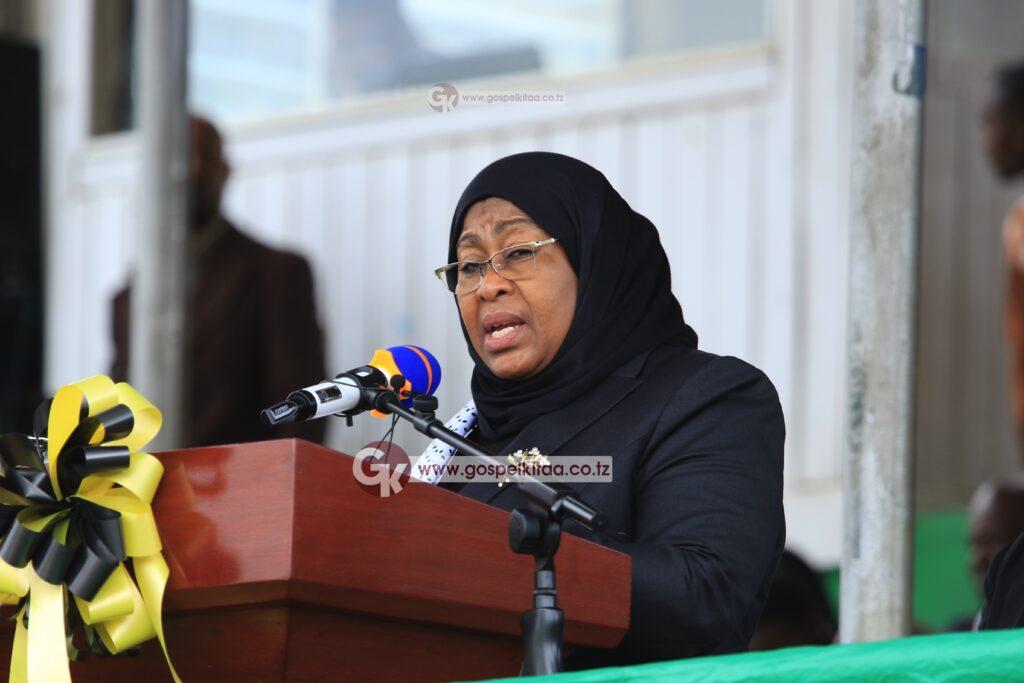Tanzanian authorities have announced a bigger crackdown on religious institutions operating outside official boundaries, following the abrupt deregistration of a church whose leader is a legislator from the ruling CCM party and has recently become increasingly critical of the government’s indifference towards rising political tensions ahead of the general election later this year.
Bishop Josephat Gwajima, the founder and leader of the Ufufuo na Uzima Church in Dar es Salaam, has publicly questioned a series of mysterious abductions, disappearances and killings of mostly opposition figures in recent months, ruffling feathers within the ruling establishment in the process.
The MP for Kawe Constituency in the city went missing as followers of his church engaged in skirmishes with the police at the church premises on the night of June 2, a day after its formal deregistration by the Ministry of Home Affairs.
By Tuesday afternoon, his whereabouts were still unknown.
The police said that some congregation members who were at the church to attend a “special prayer” session called by Gwajima had been detained for “questioning,” but have so far offered no further details.
Home Affairs Minister Innocent Bashungwa told a parliamentary session in Dodoma on Tuesday afternoon that the government had launched a formal investigation of “some religious institutions in the country to identify those that are not legally registered or are conducting their activities in violation of procedures, a situation that could cause public unrest.”There are growing fears that the incident could trigger a more serious backlash from members of Tanzania’s Christian community, adding a significantly dangerous edge to already simmering public tensions in the run-up to the election, which is scheduled for October or November.
Tanzania is almost equally divided between Christians and Muslims, with each group making up around one-third of the population.
Gwajima’s establishment, also known by the English translation Glory of Christ Church, is known to have something close to a cult following, with about 70,000 members countrywide. The main church in Dar es Salaam alone houses more than 10,000 people.
Bashungwa, however, sought to play down the fears of religious intrusion, asserting that the measures being taken by the government are “not political but designed to protect peace, security and stability in the country.”He said the government had no intention of “attacking or controlling” individual religious leaders, but rather to ensure that religious institutions in general operate in accordance with the laws of the country.“We will conduct a thorough analysis, the results of which will be tabled here in parliament for a final decision on which religious entities are operating in violation of the rules that are in place. This is so that when we take action against them, Tanzanians will understand that it has nothing to do with politics,” he stated.
The official letter confirming the deregistration of Ufufuo na Uzima church was signed by Emmanuel Kihampa, Registrar of Civil Societies, whose office operates under the Home Affairs ministry.
It accused Gwajima of making public statements and “delivering sermons with political overtones with the intention of causing discord between the government and citizens.”“These actions are contrary to the Societies Act, Chapter 337, and may threaten peace and stability in the country,” the letter added.
Read: Police seal off Gwajima church after deregistrationDuring an Id al-Fitr mass marking the conclusion of this year’s Holy Month of Ramadhan at a Dar es Salaam mosque on March 31, President Samia Suluhu Hassan issued a strong warning to clergy of all denominations not to become directly involved in pre-election politics or allow their places of worship to be used as platforms to push political agendas.“We expect religion to be used to maintain peace especially when politicians appear about to disrupt peace within our country. We won’t tolerate anyone who uses religion as a catalyst for hatred or hostility, and we will take strict action against such people,” she said. Provided by SyndiGate Media Inc. (
Syndigate.info
).







